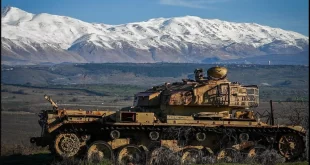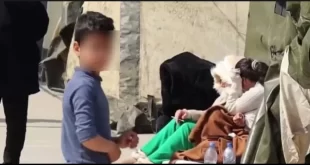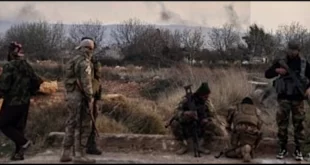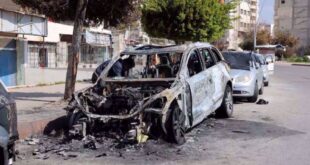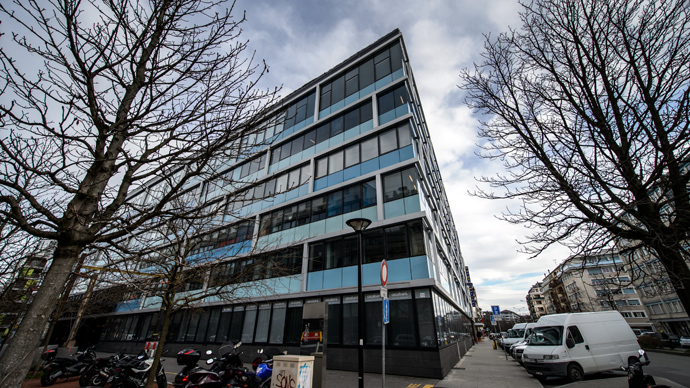
Jan 20, 2014, Nile Bowie
Preconditions placed on attending the Geneva 2 conference insisted on by the United States are detrimental to building a conducive environment for ending the fighting in Syria.
Despite months of effort by diplomats and the international community, the long-awaited Geneva 2 peace conference is in disarray. The opposition Syrian National Coalition (SNC) – an exiled umbrella organization supported by Western and Gulf states that represents a negligible segment of rebel groups on the ground – has agreed to attend the talks under heavy pressure from their backers. Division runs deep for many within the group who oppose the decision to attend Geneva 2, and the SNC’s presence at the talks are still in question.
UN Secretary-General Ban Ki-moon’s decision to extend an invitation to Iran prompted the SNC to threaten pulling out of the talks if the UN’s invitation to Tehran is not rescinded. Even if the peace talks proceed, the unpleasant prospect that nothing tangible will emerge from them due to irreconcilable differences between the two sides looks like the most plausible outcome.
One of the key obstacles facing the negotiations is the SNC’s lack of legitimacy and its capriciousness, and that its members are mostly exiled Syrian dissidents who are not seen as credible by the fighters on the ground, primarily among Islamist groups that dominate the battlefield. The belief that the SNC can accomplish something meaningful at the negotiating table is cast deeper into doubt by critical assessments from dissenting former members of the group.
In a recent letter explaining his resignation, former SNC Secretary-General Mustafa al-Sabbagh concedes that the organization failed to extend humanitarian relief efforts and to make any political or military progress; he describes the SNC as “a body that is entirely separate from the Syrian domestic arena.” Former member Mohammad Bassam Imadi’s description is no less critical; he stated in a recent interview that the SNC “…was only some expatriates who were living outside Syria, they lost touch with reality in Syria. They didn’t know what was going on… They thought that within a few months they will become presidents or ministers so they were not interested in doing anything other than contacting the foreign powers…”
‘Assad has no place in Syria’s future’
It is against the backdrop of an incapable and divided opposition coalition that US Secretary of State John Kerry’s demands that President Assad moves aside as a non-negotiable outcome of the Geneva 2 talks seem all the more untenable. The US side argues that President Assad cannot have any part in Syria’s political future, and that Geneva 2 must serve as a platform to initiate the Geneva communiqué established in June 2012, which according to Washington calls for the establishment of a transitional government tasked with facilitating free and fair elections.
Damascus has agreed to send a delegation of senior diplomats to the talks, but maintains that certain points in the Geneva communiqué are in conflict with the legal and political position of the Syrian state. Syrian Foreign Minister Walid al-Muallem has ostensibly set conditions for the talks by announcing that prisoner exchanges and a ceasefire in Aleppo would be on the table for discussions at Geneva 2.
Muallem claimed that the Aleppo ceasefire could be used as a blueprint for armistices in other conflict zones if proven successful, and despite this offer being the most substantive yet proposed to deescalate the crisis, John Kerry condemned it with appalling arrogance, stating, “If Assad is not discussing a transition and if he thinks he’s going to be part of that future, it’s not going to happen.”
As one of the staunch backers of Syria’s rebels, the United States has unabashedly taken positions against the Syrian government based on invalid and fallacious hearsay and false claims; it has not attempted to obscure that the toppling of President Assad remains one of its principle foreign policy aims as the CIA continues its covert programs to bolster rebel fighters. Washington cannot be seen as a meaningful peace-broker in the Syrian conflict while at the same time demanding a pre-emptive surrender of one of the two negotiating parties in the dialogue, such a notion is completely contrary to the very premise of negotiation.
Misreading the Geneva communiqué
The formal mandate for the conference was agreed upon in 2012 and is known as the Geneva communiqué; the Syrian and Iranian governments have not publically endorsed it.
Washington’s insistence that Assad must step down to facilitate a transitional government is couched in a misreading of the communiqué text, which contains no clauses that stipulate that President Assad or any other government official must step aside.
The text calls for “the launch of a Syrian-led political process leading to a transition that meets the legitimate aspirations of the Syrian people and enables them independently and democratically to determine their own future,” and a “future that can be shared by all in Syria.” The communiqué calls for newly emerging political actors to compete fairly and equally in multi-party elections, while rejecting sectarianism and ethnic or religious discrimination. The text also mandates the creation of a neutral transitional governing body that would exercise full executive powers, which specifically could “include members of the present government and the opposition and other groups and shall be formed on the basis of mutual consent.”
Furthermore, the documents states, “The process must be fully inclusive to ensure that the views of all segments of Syrian society are heard in shaping the political settlement for the transition.”
A fair interpretation of the text infers that all segments of Syrian society should shape political outcomes, including government supporters. It is no secret that President Assad’s forces have made significant strides on the battlefield and have the upper hand at the negotiating table. There is still political division in Syria’s major cities, but the government has made inroads into rebel strongholds in the north and south. The government firmly controls the western coastal areas and an increasing amount of critical supply routes and highways between Damascus and Aleppo. As long as the opposition consists of out-of-touch exiled dissidents with dual-citizenship or hardline Sunni Islamist militias being supported from Gulf countries, the Syrian government would likely extend its mandate if elections were held. Elections cannot be “free and fair” if the candidate most likely to win is excluded.
Negotiations for Syria’s stability
For the vast majority of Syrians who have weathered incredible hardship and tragedy since this conflict began, restoring some semblance of security and stability takes precedent over all else.
It should be considered that even if peace talks between Damascus and the SNC produce favorable outcomes, many of the most radical groups would not honor the ceasefire and still continue to fight. Even in a scenario where Assad steps down, these groups will not yield and may even push harder if a power vacuum is created. It would be incredibly difficult to maintain ceasefires in conflict zones for extended periods of time due to a vast array of groups opposing the peace talks and opposing each other. Even so, the SNC and Syrian government should put their differences aside and attempt to negotiate measures to deescalate the fighting so humanitarian supplies can be made available to wider segments of the population where possible.
The Geneva 2 talks will be the first face-to-face meeting between the representatives of the Syrian government and the opposition since the country’s crisis began in March 2011, and to expect a transitional government to emerge at this stage is entirely premature.
The scope of these talks should not be about power politics, but focused on implementing ceasefires and making available legitimate humanitarian supplies such as food, clothing and medicine. No matter the outcome of peace talks, the Syrian government will have to continue pursuing a military solution to rid the country of radical militias and terrorist groups, and if ‘moderate’ groups are interested in peace, they should align themselves with the Syrian Arab Army and assist them in re-establishing order in the country. Due to the regional nature of the conflict, players such as Saudi Arabia and Iran should attend without preconditions to negotiate some kind of compromise that would reduce and end material support to non-state actors fighting on both sides in Syria.
 Syria Support Movement solidarity with the Syrian people
Syria Support Movement solidarity with the Syrian people

